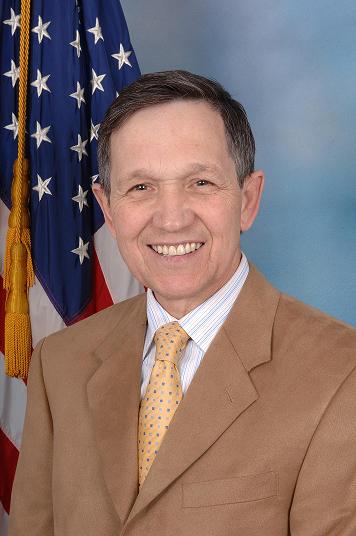Libyan rebels have entered Tripoli. As gun battles break out across the city, it is timely to enter into a discussion as to how the rebels arrived there. It is time to review the curious role of NATO and the future of U.S. interventionism.
A negotiated settlement in Libya was deliberately avoided for months while NATO, in violation of UN Security Council (UNSC) Resolutions 1970 and 1973, illegally pursued regime change. NATO chose sides, intervened in a civil war and morphed into the air force for the rebels, who could not have succeeded but for NATO's attacks.
NATO acted with impunity. The NATO command recklessly bombed civilians in the name of saving civilians. Usurping the United Nation's traditional role, NATO looked the other way as the arms embargo was openly violated by U.N. member nations.
NATO's top commanders may have acted under color of international law but they are not exempt from international law. If members of the Gaddafi Regime are to be held accountable, NATO's top commanders must also be held accountable through the International Criminal Court for all civilian deaths resulting from bombing. Otherwise we will have witnessed the triumph of a new international gangsterism.
The reasons for the U.S./NATO intervention in Libya keep changing. First it was about the potential for a massacre in Benghazi. When the massacre did not materialize and once the war against Libya was underway, the reasons for intervention changed.
We were reminded Libya had spent 'forty years under a tyrant.' We were urged to remember the destruction of Pan Am Flight 103 over Scotland, which occurred 23 years ago this December 21st. Yet almost 20 years later, on November 18, 2008 the Associated Press reported that President George Bush called Colonel Gaddafi personally "to voice his satisfaction that Libya has settled a long-standing dispute over terrorist attacks, including the bombing of a Pan Am jet over Scotland."
On December 19, 2003 Libya voluntarily gave up its nuclear weapon-making capability and on January 6, 2004 ratified the Comprehensive Test Ban Treaty. Its relationship with the U.S. on the mend, Libya then opened up to international investment and began the wholesale privatization of its industries, leading to massive unemployment and dissatisfaction with the state of things, particularly among younger Libyans.
I mention this not to sympathize with Colonel Gaddafi's brutality or to minimize the great tragedy of Flight 103. But if the U.S. had come to terms with Gaddafi's past violence, why does the Obama Administration invoke it as justification for an attack on Libya? One conclusion could be that the reasons for the March 2011 attack were bogus.
Once into the war, the Administration promptly passed off nominal responsibility for the war to NATO, after beginning the war without congressional authorization. NATO became the beneficiary of U.S. funds, U.S. war planes, U.S. drones, U.S. bombs, and U.S. intelligence assets.
NATO violated UNSC resolutions. The Obama Administration violated the U.S. Constitution by bypassing Congress on the war. These are not mere academic matters. They have moved the world community from the rule of law to the rule of force and have set a precedent for NATO to become the new global-cop. Far from bringing a new level of security to the world scene, NATO has brought a new level of insecurity and unaccountability.
The question of the reason for United States' involvement in Libya remains.
Was the United States' Central Intelligence Agency involved in planning for regime change prior to events in February and March in Benghazi? Did the CIA and its assets have a role in fomenting a civil war?
Was the United States, through participation in the overthrow of the regime, furthering the aims of international oil corporations in pursuit of control over one of the world's largest oil resources?
Did the United States at the inception of the war against Libya align itself with elements of Al Qaeda, while elsewhere continuing to use the threat of Al Qaeda as a reason for U.S. military intervention, presence and occupation?
The foreign policy objectives of the Obama Administration are cloudy. Pledges to end the wars in Afghanistan and Iraq are in doubt. The Iraq War is supposed to be over at the end of this year, yet that promise appears to be fading. The U.S. presence in Afghanistan appears to be open-ended. The latest reports describe a U.S. commitment in Afghanistan through 2024. This raises the question as to whether the Administration has full control over the military and intelligence apparatus.
In the case of Libya, now that NATO, with the help of the U.S., has brought the rebels into the streets of Tripoli to fight, what follows? What's the plan? Who governs and for whose sake? Will Libya become NATO's protectorate?
(Note: You can view every article as one long page if you sign up as an Advocate Member, or higher).





